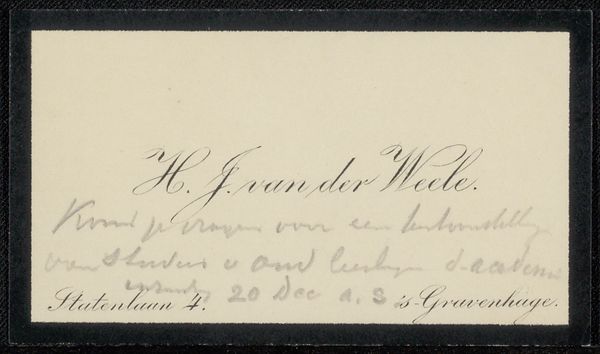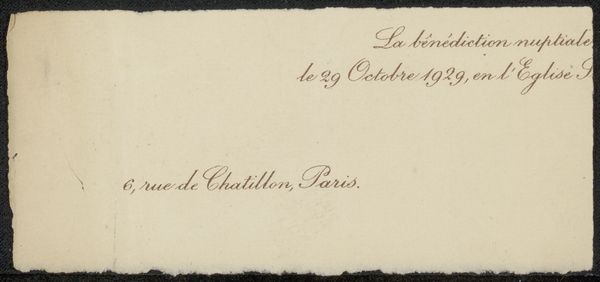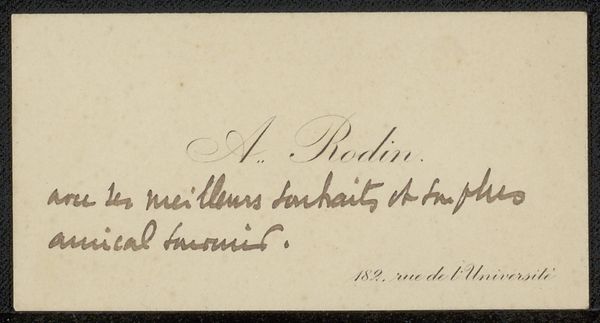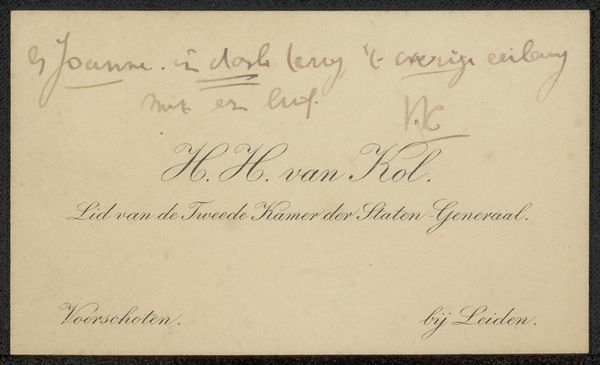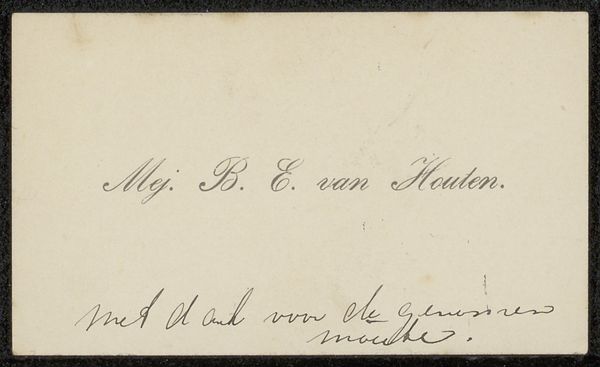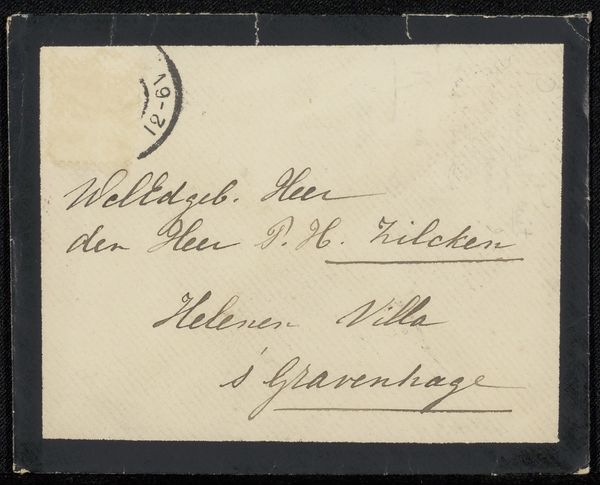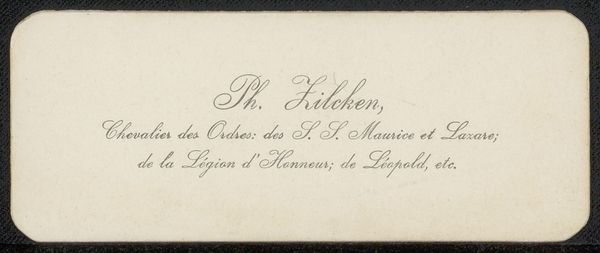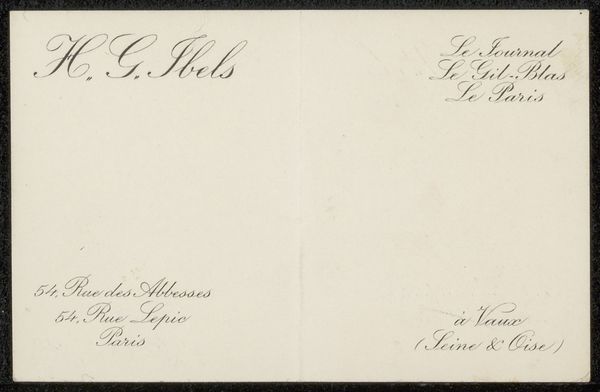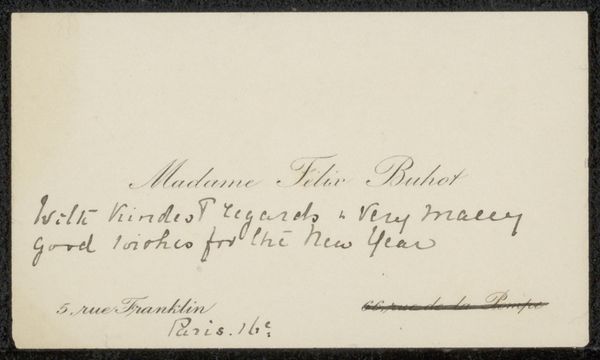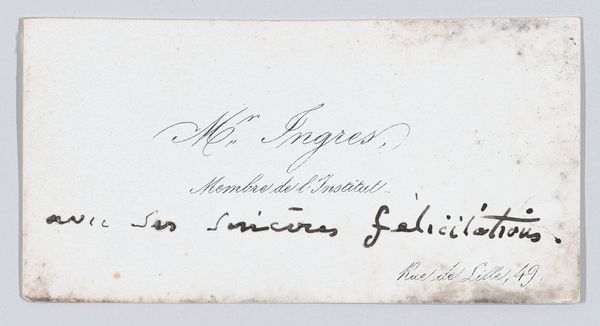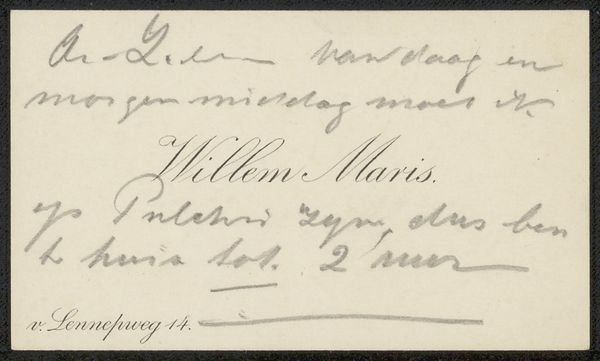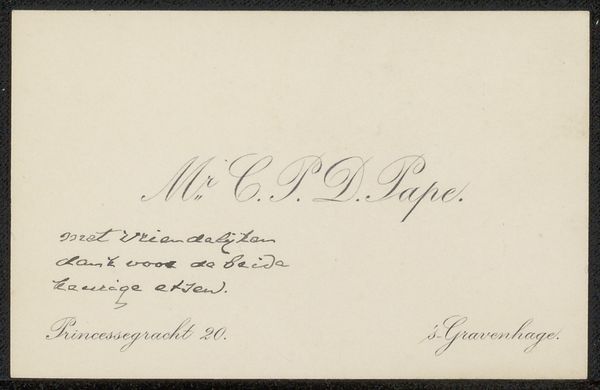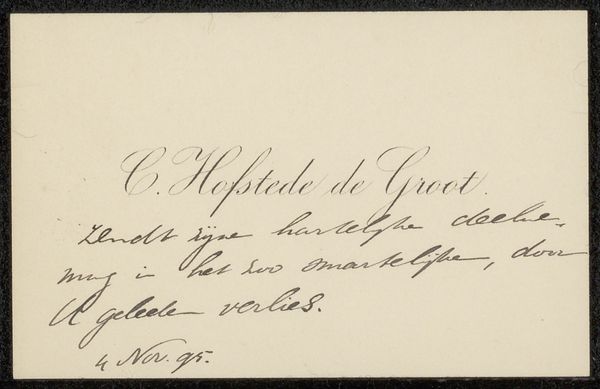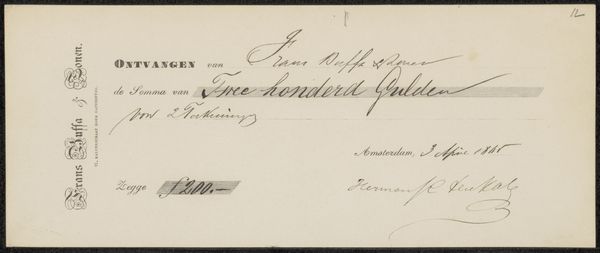
drawing, paper, typography, ink
#
portrait
#
drawing
#
aged paper
#
script typography
#
hand-lettering
#
arts-&-crafts-movement
#
hand drawn type
#
hand lettering
#
paper
#
typography
#
ink
#
hand-drawn typeface
#
fading type
#
thick font
#
handwritten font
#
golden font
#
decorative-art
#
calligraphy
Copyright: Rijks Museum: Open Domain
Editor: Here we have Walter Crane’s "Visitekaartje aan Philip Zilcken," dating from around 1855 to 1915, crafted with drawing, ink and paper. The elegant script immediately caught my eye; it feels like a relic from a bygone era of personalized correspondence. What can you tell me about the significance of such an artwork? Curator: This calling card offers a fascinating glimpse into the social rituals of the late 19th and early 20th centuries. It’s more than just a name and address; it represents a carefully curated personal brand within artistic and social circles. The fact that it's by Walter Crane, associated with the Arts and Crafts movement, gives us insight into the value they placed on design in everyday life, right? Editor: Definitely! So, the aesthetics are intertwined with societal performance... Did the act of distributing such a card carry any weight of artistic identity? Curator: Absolutely. Think of it as a mini-manifesto. Crane, known for his illustrations and socialist ideals, likely saw even a simple calling card as an opportunity to promote the movement's emphasis on craftsmanship and beauty for all, challenging mass production. How do you see that possibly contrasting with art today? Editor: Well, the art world operates on very different modes of communication. It all seems incredibly public, now, in comparison. I suppose this would have seemed quiet, sophisticated. The hand-drawn nature speaks to its time. I’d say it underscores how intertwined art was, then, with the presentation of self. Curator: Exactly! And by preserving even seemingly minor pieces like this, museums contribute to understanding the social dynamics and aesthetic values of different periods. Editor: That really adds another layer of appreciation to this simple piece of ephemera. Thanks for the insight!
Comments
No comments
Be the first to comment and join the conversation on the ultimate creative platform.
